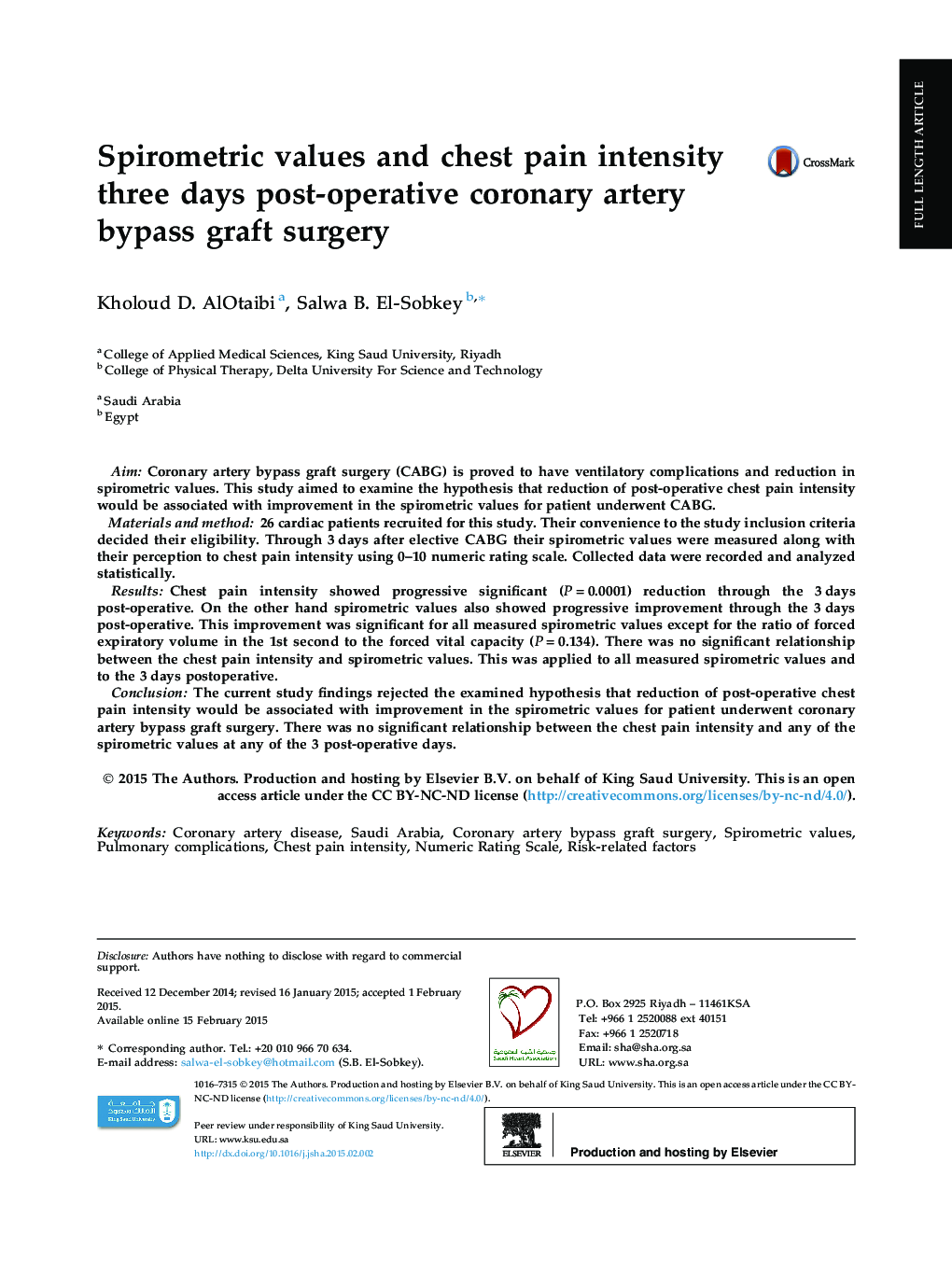| Article ID | Journal | Published Year | Pages | File Type |
|---|---|---|---|---|
| 2977745 | Journal of the Saudi Heart Association | 2015 | 7 Pages |
AimCoronary artery bypass graft surgery (CABG) is proved to have ventilatory complications and reduction in spirometric values. This study aimed to examine the hypothesis that reduction of post-operative chest pain intensity would be associated with improvement in the spirometric values for patient underwent CABG.Materials and method26 cardiac patients recruited for this study. Their convenience to the study inclusion criteria decided their eligibility. Through 3 days after elective CABG their spirometric values were measured along with their perception to chest pain intensity using 0–10 numeric rating scale. Collected data were recorded and analyzed statistically.ResultsChest pain intensity showed progressive significant (P = 0.0001) reduction through the 3 days post-operative. On the other hand spirometric values also showed progressive improvement through the 3 days post-operative. This improvement was significant for all measured spirometric values except for the ratio of forced expiratory volume in the 1st second to the forced vital capacity (P = 0.134). There was no significant relationship between the chest pain intensity and spirometric values. This was applied to all measured spirometric values and to the 3 days postoperative.ConclusionThe current study findings rejected the examined hypothesis that reduction of post-operative chest pain intensity would be associated with improvement in the spirometric values for patient underwent coronary artery bypass graft surgery. There was no significant relationship between the chest pain intensity and any of the spirometric values at any of the 3 post-operative days.
